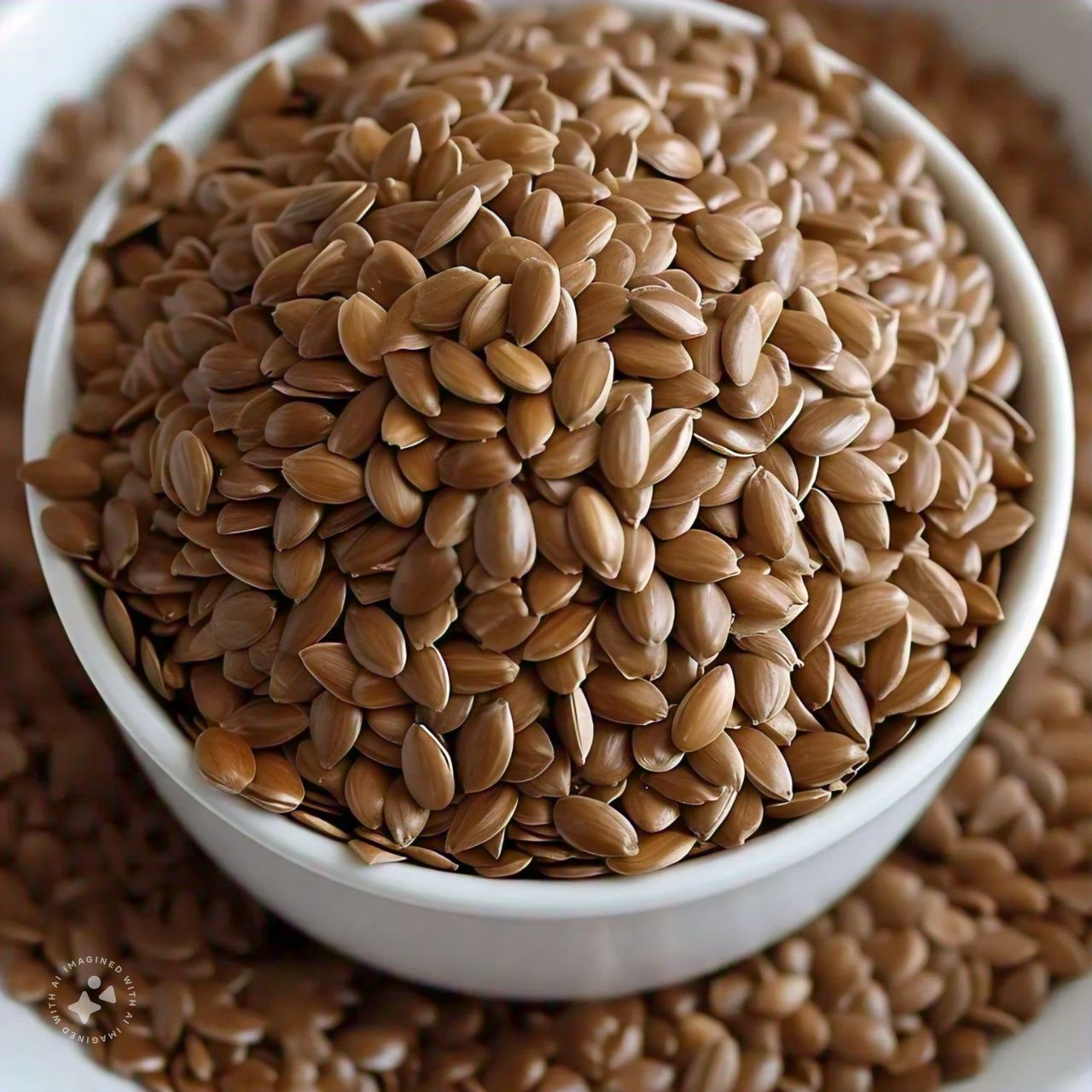Flax seeds, also known as linseeds, are tiny, golden or brown seeds derived from the flax plant (Linum usitatissimum). Renowned for their nutritional richness, flax seeds are a powerhouse of essential nutrients and have been used for centuries in traditional remedies and culinary applications.
Nutritional Value and Health Benefits
Why Flax Seeds Are a Superfood
Flax seeds are a rich source of:
-
Omega-3 Fatty Acids: Essential for heart and brain health.
-
Lignans: Plant compounds with antioxidant and estrogen properties.
-
Dietary Fiber: Supports digestive health and weight management.
-
Protein: Builds and repairs body tissues.
-
Vitamins and Minerals: Contains magnesium, thiamine, and phosphorus.
Key Health Benefits
-
Promotes Heart Health: Reduces cholesterol levels and supports cardiovascular function.
-
Aids Digestion: High fiber content relieves constipation and supports gut health.
-
Supports Weight Management: Keeps you fuller longer, reducing overeating.
-
Balances Hormones: Lignans help regulate hormonal imbalances.
-
Improves Skin and Hair: Omega-3s and antioxidants enhance skin elasticity and hair strength.
-
Manages Blood Sugar Levels: Beneficial for people with diabetes.
Culinary Uses of Flax Seeds
How to Use Flax Seeds in Cooking
-
Baking: Incorporate into bread, muffins, and cookies for added nutrition.
-
Smoothies: Blend ground flax seeds for a nutty flavor and nutrient boost.
-
Toppings: Sprinkle on yogurt, oatmeal, or salads for crunch.
-
Egg Substitute: Mix 1 tablespoon of ground flax seeds with 2.5 tablespoons of water as a vegan egg alternative.
Cooking Tips
-
Use freshly ground flax seeds for maximum nutrient absorption.
-
Store in an airtight container in a cool, dark place to maintain freshness.
-
Pair with whole grains for a complete protein source.
Sustainability and Food Waste Impact
Environmental Benefits of Flax Seeds
-
Eco-Friendly Crop: Flax requires minimal pesticides and water to grow.
-
Biodegradable: Waste products from flax production decompose naturally.
-
Minimal Processing: Processing flax seeds requires less energy compared to other crops.
Tips to Reduce Food Waste
-
Buy flax seeds in small quantities to prevent spoilage.
-
Store properly to avoid rancidity.
-
Compost any unused seeds or expired flax meal.
Seasonal Favorites and Holiday Recipes
Seasonal and Holiday Uses
-
Winter Warmers: Add to soups, stews, and hot cereals.
-
Festive Baking: Use in holiday bread, cookies, and pies.
-
Summer Smoothies: Blend into fruit smoothies for a refreshing and nutritious boost.
Comparisons: Flax Seeds vs. Other Superfoods
| Feature | Flax Seeds | Chia Seeds | Hemp Seeds |
|---|---|---|---|
| Nutritional Profile | High in omega-3 and lignans | High in fiber and omega-3 | Rich in protein and omega-6 |
| Culinary Uses | Baking, smoothies, toppings | Puddings, drinks, toppings | Smoothies, salads, snacks |
| Texture | Crunchy and nutty | Gel-like when soaked | Soft and nutty |
Frequently Asked Questions
Are Flax Seeds the Same as Linseeds?
Yes, flax seeds and linseeds are two names for the same seed, with "flax" more common in the U.S. and Canada and "linseed" in Europe and Asia.
How Do I Store Flax Seeds?
Store whole flax seeds in a cool, dry place and ground flax seeds in the refrigerator to extend freshness.
Can Flax Seeds Be Eaten Raw?
Yes, but grinding them makes nutrients more bioavailable. Ensure raw seeds are fresh to avoid bitterness.
Call to Action: Elevate Your Health with Flax Seeds!
Boost your nutrition and explore endless culinary possibilities with premium flax seeds. Shop now for high-quality flax seeds and take the first step toward a healthier lifestyle!





Share:
The Complete Guide to Nigella Seeds: Benefits, Uses, and Sustainability
Cobra Saffron: The King of Spices